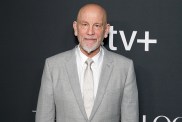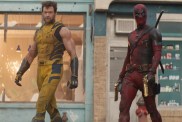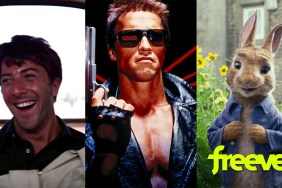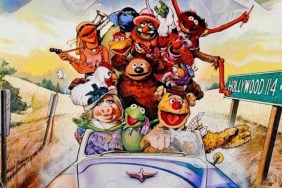
Pulp Fiction was released 15 years ago today (minus two days) and slowly but surely we have started to reconsider how we view the film. When it first came out, it was as close to a religious experience as you could get within the movie industry from all angles. It influenced a lot of less talented filmmakers to try and copy Quentin Tarantino’s success. The results were mostly cringe-worthy. Why did I have to suffer through 2 Days in the Valley? Things to do in Denver When You’re Dead? Thursday? Spun? Because Hollywood loves them a fad. Some imitations were much more vibrant and distinct (Go and Lock, Stock and Two Smoking Barrels come to mind). But mostly, there was a lot of crap. Either way, it was a movie that – like it or not, for better or worse – influenced cinema, more so than any movie since.

When it came out, people picked it apart like they were digging for gold. Over time people have come to accept it more and more for what it is: less an intellectual ride than a pure adrenaline rush of metamovie fun. As we’ve become more familiar with Tarantino our perspective on the film itself has enhanced.
Quentin celebrates movies. In every film he makes you feel his enormous love for cinema, and I’m talking all sorts of cinema. To name a few, he seems obsessed over French New Wave, westerns (particularly Sergio Leone), Brian de Palma, blaxploitation and foot porn. Good movies, bad movies… it doesn’t matter. He loves it all and even if you don’t like a lot of his influences he’s going to make a version of those influences that you are going to go wild for. At least that’s how it’s worked out for me.
I had just become familiar with Tarantino who at 29 made Reservoir Dogs. It shook the indie world and left critics wondering what he was going to do next. We’ve never really stopped asking that question and for some it’s become a point of obsession. When he followed Pulp up with Jackie Brown in ’97, many were left scratching their heads. Wasn’t this guy going to save cinema? A low-key character drama/blaxploitation homage by way of Elmore Leonard was not what people were expecting, certainly not what I was expecting.
Flashback a couple weeks before Pulp Fiction‘s opening night. It was quite a year already. The Shawshank Redemption made its mark on me only a month before (as discussed last month). And right around the period I watched Andy dig his way out of prison, I rented Reservoir Dogs for the first time. I’d seen the trailers for it about a million times on various VHS rentals and with Pulp‘s pending release, I finally sat down to watch it. After the movie was over, I rewound the VHS and watched it straight through again. I’ve done that maybe one other time since. I was floored. It’s hard to explain what I felt. Energized?
Flash forward now a few weeks later, I’m exiting the theater as Pulp Fiction‘s credits roll. There was electricity in the air. Something happened in that theater. People saw something they had not before. Not quite like this. Something so undeniably cool and fresh and vulgar and – most distinctly I remember at the time – so fantastically politically incorrect. I remember feeling political correctness besieging this country to a nauseating extent (count me as a proud owner of James Finn Garner’s Politically Correct Bedtime Stories, released in April of the same year), and here comes Pulp Fiction and bearing a message: Fuck you.
If Reservoir Dogs tore open a hole into a new universe, Pulp Fiction was a double-barrel blast. None of my friends were interested (yet) in seeing the film so I dragged my sister. Five minutes in, I was wondering if she’d hate me forever. The movie opens with style, so awkward at the time because it was so damn new. I got the What the hell did you just drag me to? vibe from my sis not even 5 minutes in. She wasn’t alone. You could feel the nervousness in the audience. The fidgeting. It was uncomfortable for a minute. This isn’t something we were expecting at all. This is… different. But all of that awkwardness went away, not sure when. But I knew that Tarantino owned me, my sister and the rest of the audience by the time John Travolta’s syringe-gripping fist was raised over Uma Thurman’s overdosed body.
Who were these people? What planet was this? What’s with all the wigs? And how wonderful it is to listen to characters talk about their opinions, their philosophies, rumors and trivial pop culture references. They’re alive! Tarantino was building a universe and he was sculpting characters within that universe. By the end the movie, you stop asking and say to yourself, Ah, that’s who these people are.
The biggest reason Pulp Fiction made such an impact at the time, and why it remains popular today, is that it is a zeitgeist of the ’90s and beyond. You can say this about few films. If the movie is shallow (as it has been accused), that says a lot about us and our own obsessions. Pulp is a byproduct of our image and pop-culture driven society that worships false American idols. It uses that mindset if not condoning. It was and remains a film of our time and for all of Tarantino’s old school infatuations and developed fetishes, his reconstructions of his film experiences blend into something wholly original. The way Wall Street could not have been made before the ’80s for obvious reasons, Pulp Fiction could not have been made before the ’90s. It comments on or pays homage to prior decades creating an almost schizo-retro feel that is part of the film’s charm. Here is a movie that swims through time both narratively and through its characters.

This was, of course, John Travolta’s comeback role. It earned him an Oscar nomination for Best Actor (that really should have gone to Johnny Depp for Ed Wood. Is there any doubt he would have scored it today? The Academy can be incredibly trendy). Travolta is understated, dry and very funny.
This was also the story of When Q Met U, with Uma Thurman garnering what should have been her first of three Oscar nominations (you’re reading the ravings of a man who believes Thurman was robbed of an Oscar for both Kill Bill films). Meanwhile, Bruce Willis is the epitome of cool as Butch, a boxer who kills his opponent in the ring and kinda-sorta feels bad about it. And though he’d caught my attention in films here and there, Tarantino showed us what a powerful force Ving Rhames could be on screen (by the way, Hollywood, any time you want to give him real roles, feel free).
Christopher Walken pops up showing everybody how a Quentin Tarantino cameo gets done. Given the success Walken has had delivering Tarantino dialogue (he also made his mark beautifully in True Romance) it’s a wonder he hasn’t appeared in a Tarantino feature since. Tim Roth, Amanda Plummer, Eric Stoltz, Rosanna Arquette and Harvey Keitel all report for duty and steal a moment or two from the leads (particularly Keitel). And one of my favorite performances comes from an actress named Maria de Medeiros, whom I can’t recall seeing before or since. This was one killer acting troupe.
Along with pop culture, Tarantino disrupted chronology and convention. It was not typical in a movie to have it’s characters devote so much time to the name of a quarter pounder in Europe. He wasn’t the only writer to allow his characters to breathe but it sure felt that way. And in allowing his characters that kind of freedom we are also reminded plotting can be the result of the dangerous nature of the characters simply existing in the same world with other equally dangerous beings. Here the plot is defined by the characters, not the other way around.
The world of Pulp Fiction only exists in the movies and Tarantino doesn’t exploit that as much as he celebrates it. The fakery isn’t used as an excuse to get away with the outlandish; it’s an amusement park where only wonderful freaks like these could live and breathe or be at employ. And in their own way, there isn’t a false note struck by any of them. I love Tarantino’s movies because I love his characters. It’s why he builds tension more successfully than perhaps any living director. You become so familiar with their behavior and what’s at stake so quickly you can’t help but care about every minute, every second. I may not want to live in their violent, sometimes nihilistic world that is completely free of social consequence but I wouldn’t mind a visit. So I often do.










